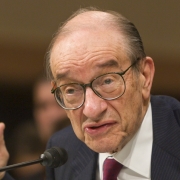The Bourgeois Virtues of Poetic Justice Warrior Deirdre McCloskey
The Adventures of Superman was a syndicated television series that ran for six seasons. Running from 1952 – 1958, its opening catch phrase was Truth, Justice and the American Way. Because they are abstract concepts, they require critical thinking. Because they are virtues, they deserve concrete understanding.
As social justice would have it, these virtues are also in short supply. As Poetic Justice would have it, renowned economist and author Deirdre McCloskey has taken the supply-side challenge, and produced her marvelous trilogy of books – Bourgeois Dignity, Bourgeois Equality, and Bourgeois Virtues.
So who or what is bourgeois? Superman’s regular characters were news journalists for the fictional Daily Planet, and it was situated in a stylized version of New York City called Metropolis. Each episode was the standard good guys vs. bad guys fare, and the reporters portrayed journalistic integrity as a common attribute. They are also members of the bourgeoisie, as are bankers, retailers, attorneys, manufacturers, and teachers.
Truth
Essentially, the bourgeoisie are middle class urban dwellers who live by the classical liberal values of personal responsibility, equality of legal justice, nurturing families, and free market opportunity. In other words, they lived independently from the coercive authorities as described by McCloskey,
The intelligentsia became alienated from the bourgeois world from which it sprung. In painting, music, and philosophy, it wished to make everything difficult and technical, and it succeeded. It is prideful overreaching to think that social engineering can work.
Exemplars of first half 20th century journalistic character include Garet Garret and Henry Hazlitt, but soon after the Superman series ended, a new brand of journalism emerged in America. In the 1960s and 70s, New Journalism could no longer abide the bourgeois demands for objective news reporting based on events, facts, and results. Truth’s absolute is reason applied to reality, but New Journalism replaced facts with their subjective “truth” as writers immersed themselves into the story they covered.
It is no coincidence that their truths, collectively, are designed to bury the biggest story in the history of the (Daily) Planet. What McCloskey has honored as the Great Fact is the estimated, and marvelous, 3000% improvement in the human condition we all enjoy. Millions of Ignorati hold the Great Fact in contempt, while the benefits affect all socioeconomic classes, particularly the destitute. Newfound respect for the primacy of the individual is the Great Fact’s moral justification and catalyst.
This revolution occurred during an extremely short time period, and began in 18th century northwest Europe. Since then, many great minds have endeavored to come up with reasonable explanations, and McCloskey is no exception. It seems our celebrated economist may have invoked Occam’s Razor – the simplest explanation is the most likely. If today’s intellectual elites prefer Complexity Worship, the answer must be the elegance of Bourgeois Dignity,
The change in rhetoric has constituted a revolution in how people view themselves and how they view the middle class – the Bourgeois Revaluation. People became tolerant of markets and innovation.
Justice
Predictable in the Superman series was a police department overwhelmed by clever villains whose lifeblood is unwitting victims. To fit the requirements of a 23 minute television show, they were symbolized by a small group of destroyers operating outside civilized norms. However, in our postmodern world, police departments are overwhelmed by a much larger group of destroyers who operate as the ultimate insiders, and whose lifeblood is also unwitting victims.
In many jurisdictions, there is a cynical hierarchy of governors, mayors, and police chiefs who pander to the idea that human nature is flawed, property rights are optional, and justice is to be assigned according to identity group affiliation. In contrast, McCloskey’s book Bourgeois Equality promotes the idea that the human mind, endowed with reason, will naturally choose life-enhancing action when left free to do so,
What led to our voting rights, our plumbing, our primary schools, were fresh ideas that flowed from liberalism. A new system of encouraging betterment and a partial erosion of hierarchy.
As Deirdre brilliantly explains, “the Great Fact is not to be explained by material matters of race, class, gender, climate, culture, religion, genetics, geography, institutions, or nationality.” Those are the domain of collectivist hierarchies. In contrast, McCloskey’s individualist networks unleash the power of reason, encourage lives of purpose, and inspire confidence in our futures. This is the stuff of Poetic Justice, it rewards action in the pursuit of rational values. As McCloskey teaches in Bourgeois Virtues,
Justice insists on private property honestly acquired. The justice to pay willingly for good work, to honor labor, to break down privilege, to value people for what they can do rather than who they are. To view success without envy, making capitalism work since 1776.
The American Way
Admiration and respect for individual, productive behavior is central to the Superman series, and fundamental to the American Way. Here, McCloskey applies more critical thinking and understanding to the abstract concepts truth, justice, and education.
The leading bourgeois virtue is the Prudence to trade rather than to invade, to calculate the consequences, to pursue the good with competence. Another is the Temperance to save, to educate oneself in life and business, and to listen to the customer.
Accordingly, economist and Poetic Justice Warrior Donald Boudreaux acknowledges McCloskey’s achievements in his review of Bourgeois Dignity,
Appointed to faculties of English, history, and communications in addition to economics, she is above all an economist. Her contributions to our understanding of the modern world rank second to none among scholars from whichever fields you might name.
It was in this seismic cultural shift toward respect for entrepreneurship that McCloskey discovered the key to civilization. First proving itself in 17th century Holland, profit became the mother of all poetic justice as profit-seeking merchants and industrialists were held in high esteem. From her new book Historical Impromptus,
If capital accumulation or the rule of law had been sufficient, the Great Fact would have happened in Mesopotamia in 2000 BC. Why did it start in Holland about 1600 and England about 1700? The answer is liberty. Liberated people it turns out are ingenious.
This led Boudreaux to coin a new term for McCloskey’s moral justice, the Dignity Return. Where criminal justice punishes vice, and social justice punishes virtue, moral justice rewards action that enhances human life.
Because people are social beings, Boudreaux further explains this contribution to our understanding of Western Civilization, “Less were the relative amounts of dignity meted out to those who specialized in slaughtering people in battle or in idling about in manor houses counting the hectares on which peasants toiled. The dignity return to bourgeois activity rose relative to that of other occupations, so predictably, too, did the amount of bourgeois activity. People do respond to incentives!”
As Alberto Mingardi summarizes at fee.org, “McCloskey’s are uncommon books in that they are easily readable by non-specialists. Her rhapsodic style, in Bourgeois Equality as well as in its predecessors, is engaging and accessible to the layman. Here’s an economist who can write, and who is worth reading, too.”





